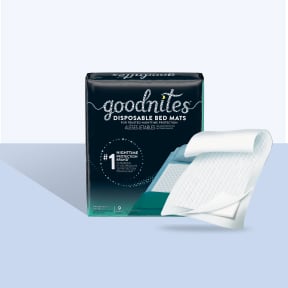
If you’ve found yourself online searching “pediatric urologist near me,” you’re not alone. When nighttime wetting continues beyond the age of 5 or so, many families choose to take their child to the doctor in order to rule out physical problems. The first step typically involves a visit to the pediatrician who, based on their findings, may refer your child to a urologist for kids.
For many children, who are leery of doctors as it is, going to a urologist can be an intimidating step, adding even more to the anxiety they already feel. However, the visit can be important to ensure your child’s health. And by learning ahead of time what to expect, both of you will be more comfortable and likely get more from the appointment.
Get Ready to Talk
During the oral history, it’s important to let your child answer as much as possible. “We don’t want to hear it all from the parent,” says Arnhym. “We want to get a feeling for how the child feels about his bedwetting.”
Tests and More Tests
During the exam, the doctor will usually look at the child’s back to check for spinal deformities, feel their belly to see if they’re constipated, and have them walk on their toes and heels to check coordination. The doctor also will examine the child’s genitals to make sure that everything is formed and functioning properly.
If your child is also experiencing daytime wetting, the doctor may conduct more specialized tests to rule out physical problems. “The doctor may use a uroflow meter, which is like a fancy toilet,” says Dr. Cooper. “When the child pees into it, it charts the urine flow rate.” If the doctor sees an irregular pattern on the flow chart, they will be able to tell if there is something blocking the flow of urine.
The doctor also may take an ultrasound of the child’s belly to ensure the bladder is emptying and working normally.
Discussing Your Options
“The doctor won’t dictate treatment — they will recommend several treatments for the parent and child to decide,” says Dr. Cooper.
Preparing for the Visit
First, prepare your child by discussing why they’re going to the doctor and what to expect. “Kids feel uncomfortable about coming in,” says Arnhym. “It may help to point out that the other kids who will be in the waiting room are there for the same thing.”
“You should definitely discuss the fact that the doctor will be checking their private parts, and it’s OK because Mom and/or Dad will be there,” says Dr. Cooper. “Most kids, with a little preparation, are OK with that.”
Also, talk with your child about your family’s commitment to resolving nighttime wetting together. “When a child who comes in has an open relationship with their parent, they tend to provide more information that can address the issue and help the child more,” says Arnhym. “When bedwetting is taboo and hasn’t been discussed, it’s hard to find out how the child feels.”
To prepare for the physical tests, keep track of your child’s daily bowel and bladder habits during the day and at night. For the urine test, your child should try to fill their bladder before in order to give a sample. “Sometimes even with the best intentions and hydration preparations, the child will have to go to the bathroom just before the appointment, so be prepared that it may take a few hours to get a urine sample,” says Dr. Cooper.
In advance of the visit, consider how aggressively — if at all — you want to approach the problem. “If the bedwetting doesn’t pose a health risk, then it’s up to the child and parent, and they should talk about it beforehand to see how they would want to treat it.”
While a pediatric urology visit is an important step to take for children who continue to wet the bed, it’s equally important to note that one visit will not put an end to nighttime wetting. “Getting over bedwetting is a process; it’s not something that will be fixed next week or that a medication will fix,” says Arnhym. However, whether or not you decide on a specific course of action, the visit will, at the very least, open up the topic of nighttime wetting between you and your child, which can be one of the best solutions of all.
Oral History
- How often does the child wet the bed or have an accident during the day?
- How often does the child urinate, and what is the stream like?
- How often does the child have bowel movements?
- Do they ever get constipated?
- Are there any streaks in the bowels?
- Are the bowel movements especially hard or soft?
- How deep a sleeper is your child? How easy are they to wake up?
- Did either parent have a problem with bedwetting as a child?
- Were there any complications when the child was born?
- How did potty training go? Was your child ever dry?
These articles are not a substitute for medical advice, consult your doctor as needed.








